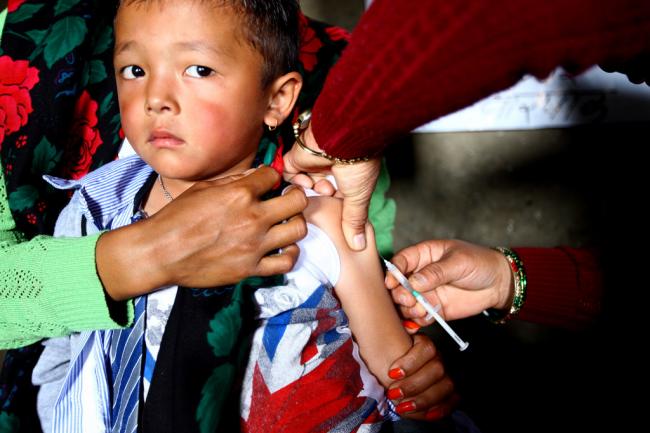
Health in 2015: from the MDGs to the SDGs, identifies the key drivers of progress in health during 15 years under the UN Millennium Development Goals (MDGs), and lays out actions that countries and the international community should prioritize starting 1 January 2016.
The report contains “snapshots” on 34 different health topics that outline trends, achievements made, reasons for success, challenges and strategic priorities for improving health in the different areas. These “snapshots” range from air pollution to hepatitis to road traffic injuries.
Although the health MDGs missed a number of global targets, according to the report, the overall results were impressive, with the past 15 years witnessing major declines in child and maternal mortality, and progress in the fight against HIV, tuberculosis and malaria in developing countries.
Saying the world now stands on “the threshold of a new era,” WHO Director General Dr. Margaret Chan said in the report’s preface the new report is a first step in a series of actions she is taking to make her organization fit to fully support the implementation of the Sustainable Development Goals agenda.
Even though almost all the SDGs are directly related to health or will contribute to health indirectly, one goal (SDG 3) specifically sets out to ‘ensure healthy lives and promote well-being for all at all ages.’
“Universal health coverage cuts across all of the health-related goals,” according to Dr. Marie-Paule Kieny, WHO’s Assistant Director-General of Health Systems and Innovation. “It is the linchpin of development in health and reflects the SDGs strong focus on equity and reaching the poorest, most disadvantaged people everywhere.”
“As the global agency with the mandate to cover the whole health agenda, WHO will take a leading role in supporting countries to set their own national targets and strategies, advising on best-buy interventions, defining research priorities and monitoring progress in achieving the health-related SDGs,” according to Dr. Kieny.
“One of the biggest challenges will be measuring progress across a staggering number of targets, particularly with the lack of health data in developing countries,” according to Dr. Kieny.
SDG monitoring requires regular, high-quality data, for example on the causes of death, from all population groups so that we know where we need to target resources.”
WHO is working with partners to establish a Health Data Collaborative in early 2016 that aims to support countries to build better health data systems.
Photo: UNICEF/Kiran Panday/www.justearthnews.com
Support Our Journalism
We cannot do without you.. your contribution supports unbiased journalism
IBNS is not driven by any ism- not wokeism, not racism, not skewed secularism, not hyper right-wing or left liberal ideals, nor by any hardline religious beliefs or hyper nationalism. We want to serve you good old objective news, as they are. We do not judge or preach. We let people decide for themselves. We only try to present factual and well-sourced news.







